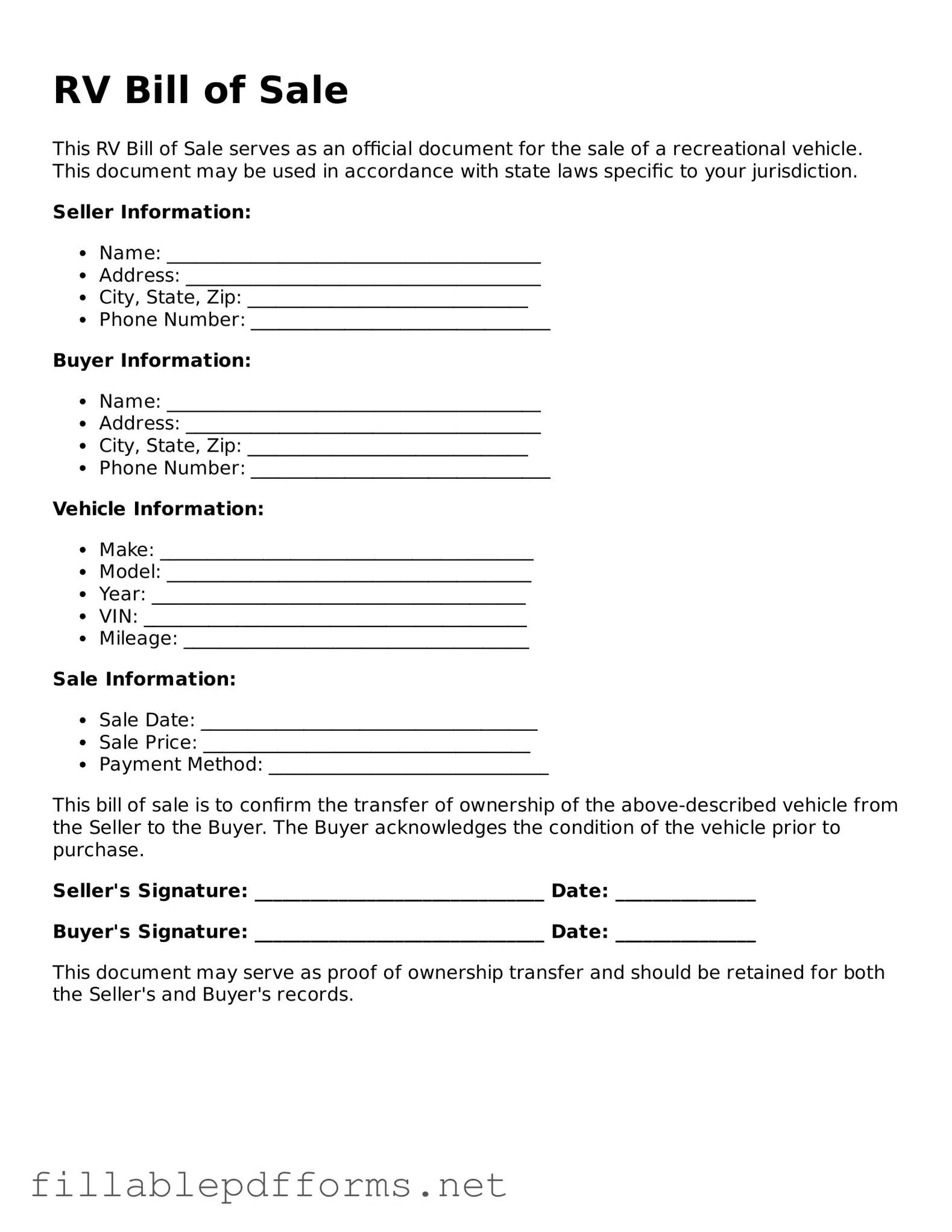Blank RV Bill of Sale Template
An RV Bill of Sale is a legal document that records the sale and transfer of ownership of a recreational vehicle. This form serves as proof of the transaction between the buyer and seller, detailing essential information such as the vehicle's description, sale price, and the parties involved. Completing this document is crucial for ensuring a smooth transfer and protecting both parties' interests.
Launch Editor Here

Blank RV Bill of Sale Template
Launch Editor Here

Launch Editor Here
or
▼ RV Bill of Sale PDF
Almost there — finish the form
Complete RV Bill of Sale online fast — no printing, no scanning.